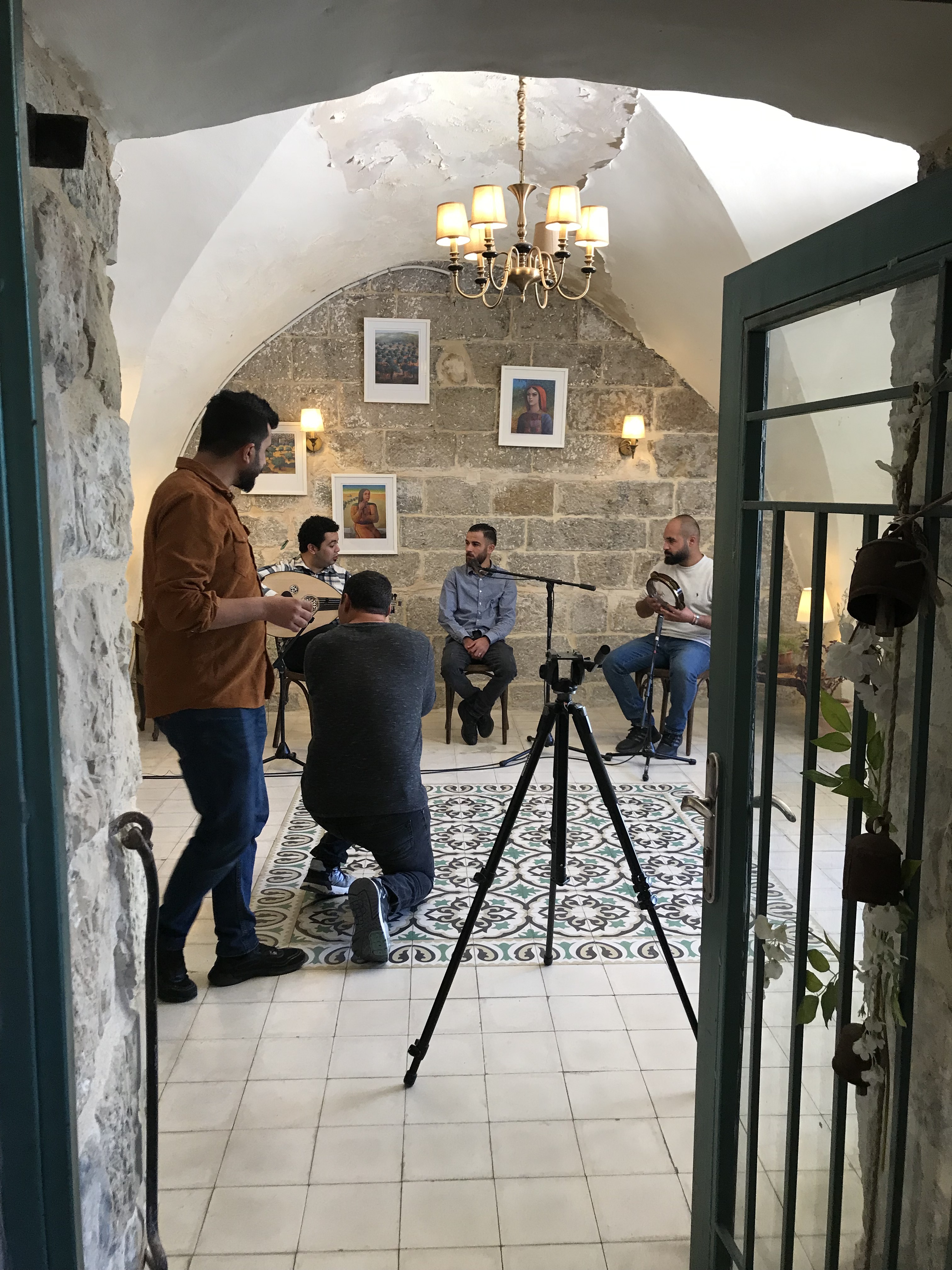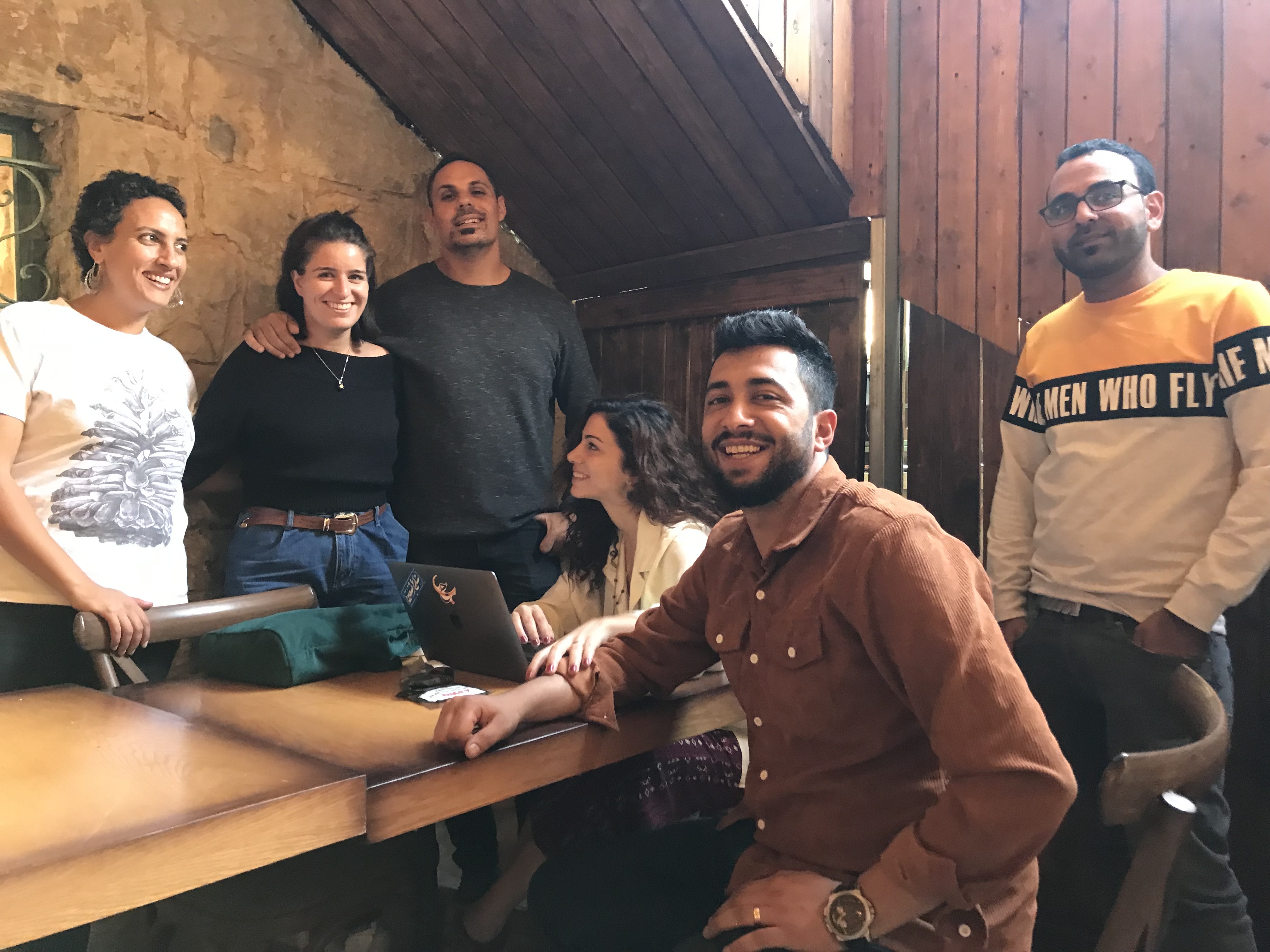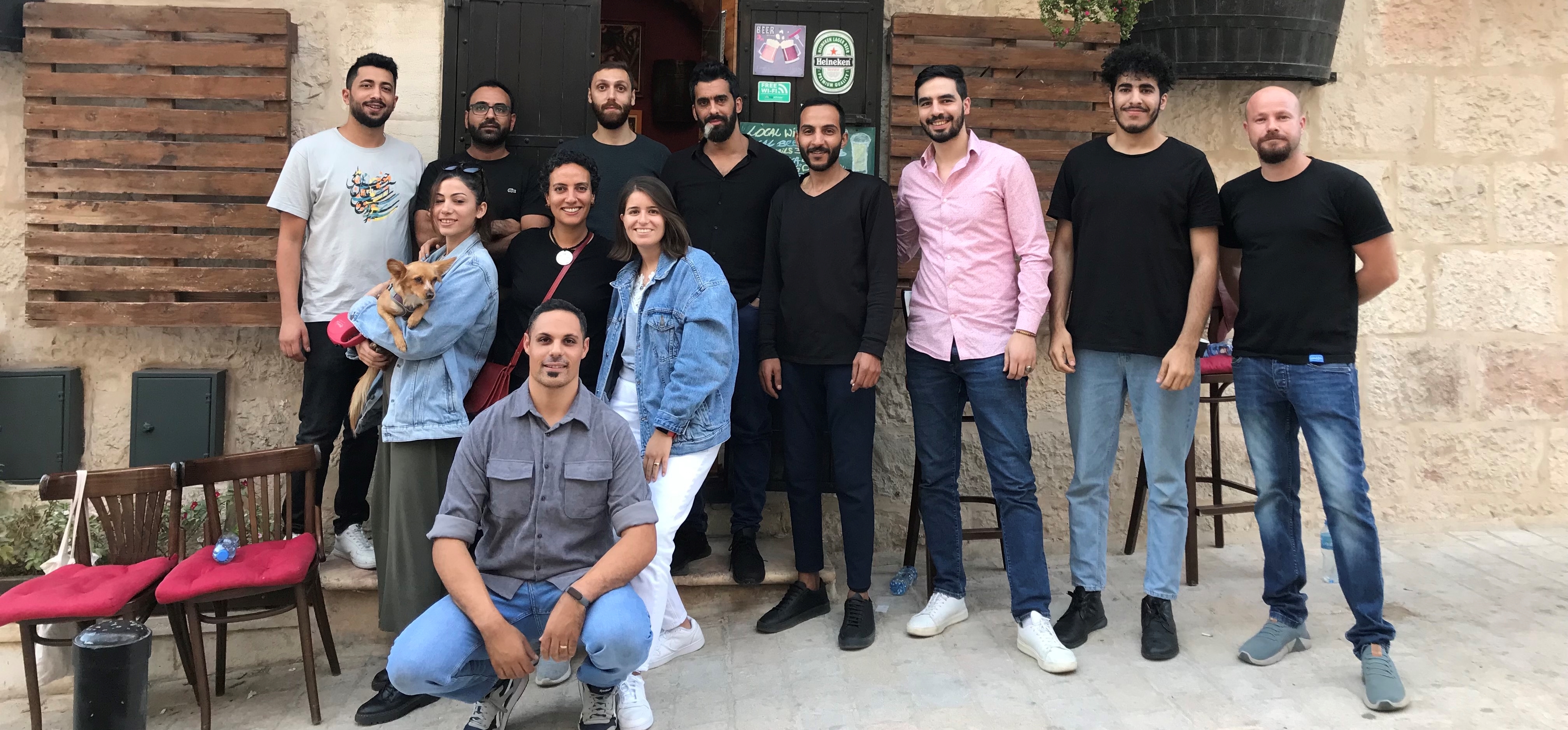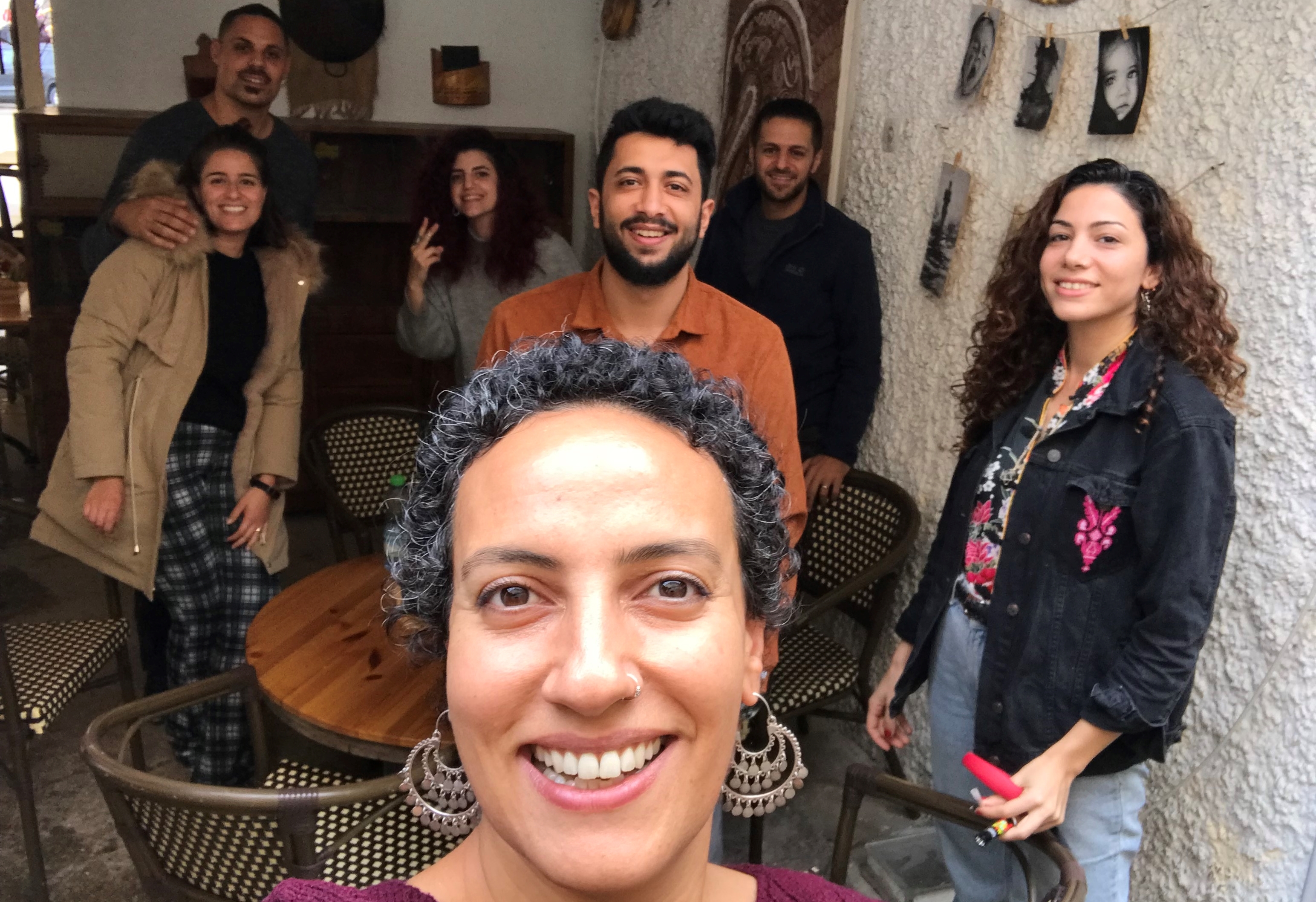Delia Arts Foundation has a new Representative in Palestine that goes by the name of Majd Hajjaj. We caught up with her at her home in Ramallah to find out more about what is going on in Palestine and some of the work that she is doing for the Delia Arts Foundation. Justin Nurse reports.
Justin: As a journalist interviewing people in Palestine, there’s something about every online conversation that makes it feel like you’ve been strolling along the beach, only to pick up a message in a bottle. The message to the outside world is clear: it’s along the lines of ‘do you have any idea what life is like here right now?’
It’s simply not possible to separate stories of Palestine – in this case, a story about a Palestinian trying her darnedest to make a difference culturally – from stories of the occupation of Palestine. So when we speak, Majd gushes with tales of Palestinian struggle: she is celebrating a friend who will be released from jail at the end of March after twenty years and mentions a brother who was put in jail for a ridiculous reason.

Majd: Every Palestinian has a story. A father who was murdered at a checkpoint, a family member in jail. People here are fragmented; there are just too many stories of injustice. Palestine has been under occupation since 1948, and we are largely portrayed by global media as terrorists and uncivilized. When one looks at the global support that Ukraine is receiving in comparison, it is true that any chance we have to change our image, we must take it. Especially now, with Delia, we can use the language of music to speak to the world.
Justin: Majd works from Ramallah, a Palestinian city in the central West Bank, about 15km north of Jerusalem. As Delia’s representative in Palestine, she has never been to the Delia Arts Center in Gaza. This makes her work in Palestine challenging…
Majd: Palestinians don’t have access to the whole geographic region of Palestine. My colleagues are in Gaza, but I can’t visit them. I was born in Jerusalem in 1988 and I have a Palestinian ID card. This means that I cannot visit the city where I was born, but traveling anywhere is a real challenge. You need a special permit to get into Gaza, and for that, you need a really good reason. The death of a family member or working for a humanitarian NGO are strong cases. Delia Arts Foundation is registered in Greece and one of the things we are attempting is to get local registration as an NGO here, making travel more possible.
Justin: Undeterred by Israeli border control and checkpoints, Majd uses the power of the internet and her on-the-ground connections to provide a platform for Palestinian artists to express themselves. In the short space of 6 months, Majd has overseen the Delia Sessions, whereby six local artists were selected to produce their music videos posted online to provide exposure for the raw talent that Palestine seems to have plenty of.
Majd: We chose three guys and three girls for those six videos, filming two artists per day on three locations over three days. Palestine is full of surprises. Working with Delia, I have been reminded how much passion there is in Palestine. We have musicians, writers, poets… there is so much fertile ground to talk about what is going on here.
Being able to recycle the atrocity and injustice of occupation and turn it into something beautiful with art, music, and theatre is a joy to be a part of. The happiness and attention that the artists involved in the Delia Sessions are receiving are heart-warming. It’s a drop in the ocean, though, and I see us as being at the very beginning of our work. My personal conviction is that what we are doing is of benefit, but we don’t want to position ourselves as saviors of the arts in Palestine.
Justin: Majd is perhaps being modest as more details of the work that she is doing with Delia unfold. In Palestine, a few music conservatories teach Palestinians how to play a musical instrument, but there is not much musical structure in terms of artists’ rights. Delia is working hard to fill the gaps and provide tools that go beyond just learning an instrument.
An example is a project in the making known as ‘Creative Corners’, described by Majd as an “ATM for making music”. It’s effectively a portable sound booth, a wooden booth complete with a tablet with music production software installed on it, a sound card, and a keyboard. You should be able to approach the booth, produce your own music, and leave it with it on a flash drive. A prototype is currently being made in Greece, and there are plans to produce them locally in Palestine too. All of which speaks to this noble idea of taking the tools for expression to the people.

Majd: Children these days are into gaming and technology and we want to help inspire them to make music without necessarily having to learn an instrument first. And when it comes to more established artists, we are currently surveying with the artists we are working with to explore ways in which we can provide training that will enhance their careers in music.
Delia is a genuine foundation that speaks to the needs of Palestinians. Many organizations have drifted away from Palestine because of the changing donor requirements. Not so with Delia; they are still very much here. These are exciting times in Palestine culturally. Ramallah has historically been the hub for music and arts festivals, but now, since COVID killed the theatre and dance festivals, there is a resurgence in places like Bethlehem and Hebron. And my job is to actively seek talent in these places.
Justin: Majd shares her experiences as a circus artist doing stilt walking and acting in films when she was younger. She speaks about how experiencing the performing arts helped transform her into having a more open-minded personality. She understands the power of performing arts as a tool for expression, as she knows that she has been on stage before and can now express herself better. She is good at her job because she has witnessed firsthand the benefit of being involved in the performing arts. Aside from being a proud Palestinian, I ask her what motivates her…
Majd: I’m motivated, really, by humanity. By “genuinety”. I don’t know if that is a word. Creating something raw, real, and beautiful. I believe music is a very human language, which moves us all.
Justin: While Majd can’t move as freely as she would like, she knows that by working with Delia and creating a base in Palestine that speaks to the needs of Palestinian musicians, she will be playing her part in moving people with the language of music.
Please contact: hello@delia-arts.org or visit www.delia-arts.org if you know of Palestinian stories involving the arts that deserve to be told.



